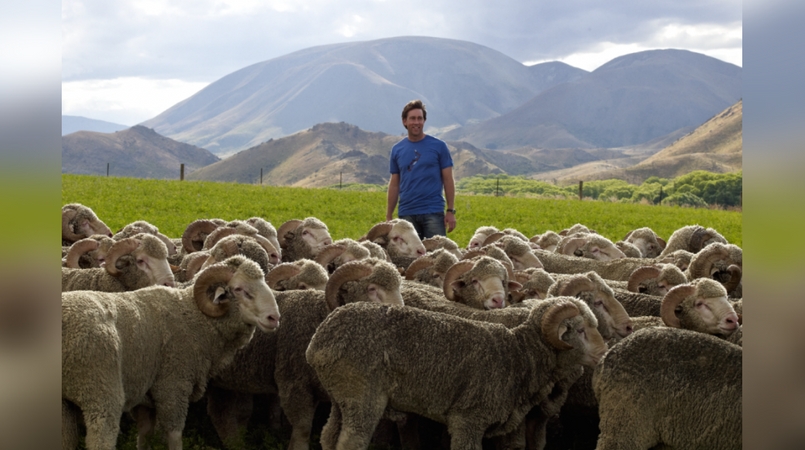
The wool industry hopes the growing fashion trend for woollen adventure and "athleisure" wear will open up new markets.
But a number of brands that rely on fine merino wool are opting to deal direct with farmers, to implement their own animal welfare standards and avoid the volatility of the open cry wool auction.
Jeremy Moon, founder of New Zealand brand Icebreaker, said the boom bust cycle made the wool auction unworkable.
"We purchase typically up to three years in advance," he said.
"We have contracts with a handpicked group of the best NZ merino growers and we agree on a fair price that is profitable for them and for us.
"That allows us access to quality product at a known price, and gets us out of that horrible auction system that pushes the price and our margin all over the place."
This year fine wool prices are up about 50 per cent on what Australian growers received at the same time last year.
However, brands like Icebreaker are unfazed by the strong demand for superfine wool, and anticipate volatility returning to the market.
"A year ago the arse had fallen out of the [fine wool] market. In another year the arse will fall out again and then it will be another boom year and no-one wants that," Mr Moon said.
"Would you prefer a bankable profitable business or would you just want to ride the auction market, which is just a lottery? It's just boom and bust stuff.
"So I really don't give a stuff what the current price is and in fact I don't even know what it is."
Non-mulesed wool and sustainability a focus
Brands have learnt that customers interested in high-end outdoor wear are also influenced by animal welfare concerns.
A number of European brands have already banned the practice of mulesing among their suppliers.
Mulesing involves removing strips of skin from a lamb's buttocks to prevent the build up of faeces and urine, which can attract an infestation of flies.
Icebreaker moved to ban the practice among its farmers after an initial backlash against the practice in the early 2000s.
"I didn't know what mulesing was until 2003, and then I started doing a bit of research before it got big," Mr Moon said.
"People are trying to buy an ethical natural product and we can't allow a practice that is quite barbaric. I understand why people do it but we can't be associated with it.
"Animal welfare has become very important. We've banned mulesing from our suppliers and we just won't work with any growers who do that."
It is not only animal welfare that is important to the modern consumer, but also the environmental practices throughout the wool manufacturing process.
"When you're making a garment it's 1,000 micro choices and mulesing is just one of them, and it's not the be-all and end-all," Mr Moon said.
"But we can't have chinks in the armour along the way.
"And while we're not perfect, we're trying our hardest to really align our whole supply chain to make a product that's really unique and different."
